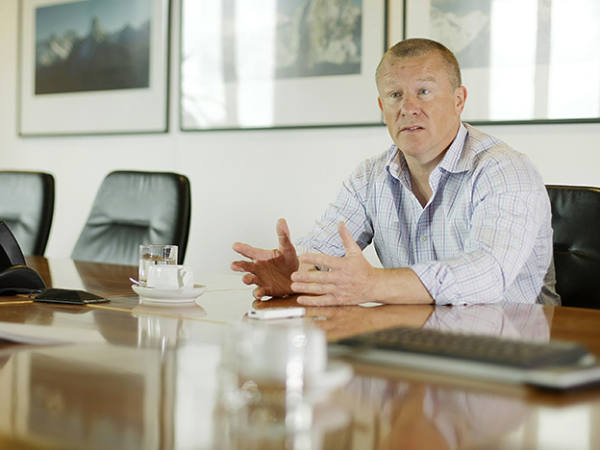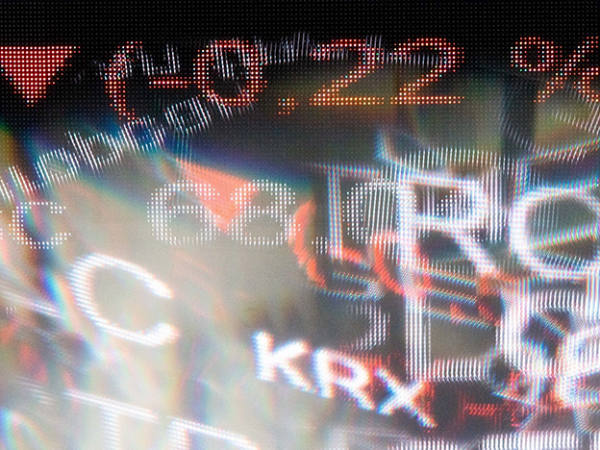Former Newton Asian Income Fund (GB00B8KPW262) manager Jason Pidcock is feeling liberated at the helm of his newly launched Jupiter Asian Income Fund (GB00BZ2YMT70). No longer tied to yield targets or a fund house view, he is adding the low-income stocks he expects to be the income payers of the future.
"I like that there's no house strategy at Jupiter, which we feel we have to go along with or explain why we don't, and that gives everyone freedom in their area, which makes them more comfortable in their view," he says.
Mr Pidcock's departure last year from Newton - a well-resourced house with a strong bank of analysts - to set up Jupiter's Asian income offering sent shockwaves through the investment community. His former £4.4bn behemoth fund now stands at £2.1bn after investors flocked to the exits.
Mr Pidcock wants his new fund to be "the go-to Asian income fund for UK-based investors". But Jupiter Asian Income will not be a carbon copy of Newton Asian Income. Mr Pidcock was restricted by Newton Asian Income's requirement to yield 35 per cent above its benchmark index, as well as single stock yield requirements. That prevented him from owning lower-yielding but faster-growing stocks, particularly those focused on healthcare services and some of his favoured names in less developed Asian regions such as the Philippines, Malaysia and Taiwan.
His new fund aims to yield around 20 per cent above the FTSE All World Asia Pacific ex Japan Index. Some of these lower-yielding but faster-growing stocks he could not previously have invested in will be in the Philippines - a region set to account for around 5 per cent of the fund.
"There are a limited number of higher-yielding options today [in the Philippines], but there are consumption-focused growth stocks that are among the best in the region," he explains. "The Philippines has a young, growing population, foreign direct investment is encouraged and it's a place that Japanese and American companies feel comfortable investing in."
He will also invest in healthcare stocks. "Healthcare and hospital management have high barriers to entry, and healthcare is a good story," he says. "But payout ratios are low while these companies are in this investment phase."
But when that phase is over the income earned could be chunky. "We are seeing dividend growth of 12-20 per cent for the healthcare sector," he says.
As well as having a more flexible approach to yield, this portfolio promises to be a trimmed-down version of the "best companies he's seen in the past 20 years", with just 40-50 holdings and more focus on large, liquid stocks. He says: "It will be a top-down and bottom-up approach. Some markets will be more bottom-up and some markets more top-down."
Jason Pidcock CV Jason Pidcock joined Jupiter in November 2015 and manages Jupiter Asian Income Fund. Prior to this, he ran Newton Asian Income Fund from its launch in 2005. Before joining Newton in 2004, he was responsible for stock selection and asset allocation in the Asia ex-Japan region for the BP Pension Fund. Before this he spent more than two years at Henderson Asset Management as an assistant fund manager. |
Mr Pidcock is targeting a total return of 9 per cent, half of which will come from yield and half from growth, meaning he does not have to rely on high yields or growth alone. He says he is "investing in tortoises rather than hares, but it is the tortoise that wins the race."
He adds: "I don't want to rely on payout ratios," explaining that the fund's mix of growth and income means he is "happy to invest in companies growing at 4.5 per cent a year. Others are looking at companies growing at 20 per cent a year".
Payout ratios across the region stand at an average of 40 per cent, with the highest in Australia at 83 per cent in 2015, and the lowest in South Korea at just 18 per cent.
Mr Pidcock is expecting Australia's ratio to come down next year, but he remains enamoured with this market, which he believes is "one of the most under-appreciated investment stories in the world". The portfolio is heavily overweight to Australia, with just under 40 per cent invested in that market, in contrast to FTSE All World Asia Pacific ex Japan Index's weighting of just over 20 per cent. The fund will remain skewed towards developed Asian markets.
"Despite the mining sector struggling, Australia didn't go into recession last year," explains Mr Pidcock. "It has an AAA credit rating. Corporate governance is very good and it has a good rule of law. It's also a place that international companies are happy to invest in, and the Chinese like to visit Australia and buy property there.
"Australian valuations are pretty good, too. Price-earnings multiples are in the mid teens and yields are around 4-5 per cent."
Although Mr Pidcock acknowledges that the mining sector shocks will hit the region, he anticipates a return to dividend growth in 2017.











